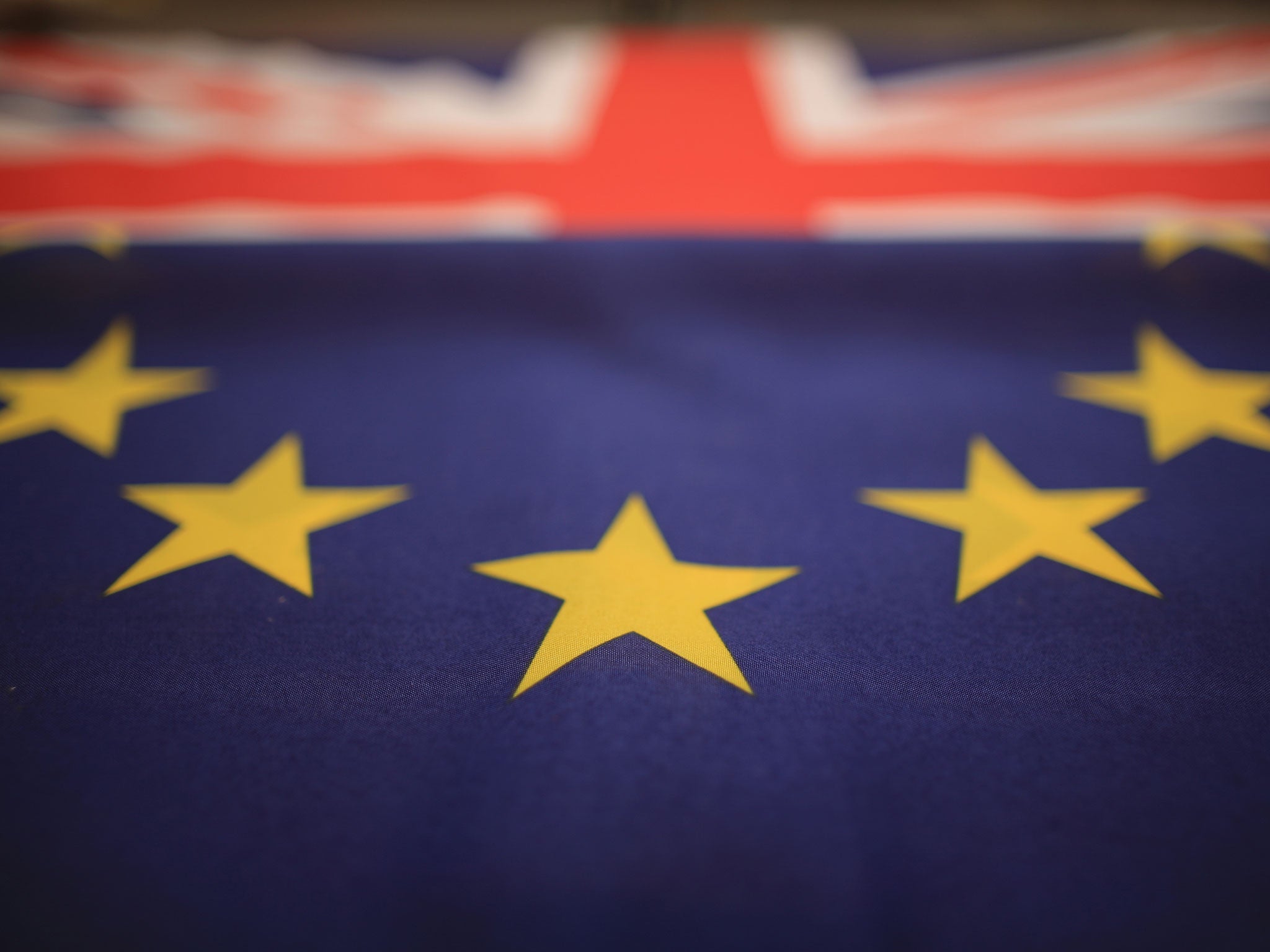EU referendum: CBI warns Brexit could blow £100bn hole in economy and cost 950,000 jobs
Shortfall in national income would equate to an average loss of around £3,700 for every household

Your support helps us to tell the story
From reproductive rights to climate change to Big Tech, The Independent is on the ground when the story is developing. Whether it's investigating the financials of Elon Musk's pro-Trump PAC or producing our latest documentary, 'The A Word', which shines a light on the American women fighting for reproductive rights, we know how important it is to parse out the facts from the messaging.
At such a critical moment in US history, we need reporters on the ground. Your donation allows us to keep sending journalists to speak to both sides of the story.
The Independent is trusted by Americans across the entire political spectrum. And unlike many other quality news outlets, we choose not to lock Americans out of our reporting and analysis with paywalls. We believe quality journalism should be available to everyone, paid for by those who can afford it.
Your support makes all the difference.Leaving the European Union could blow a £100bn hole in the UK economy and cost up to 950,000 jobs, the CBI has warned, in what is easily the most pessimistic economic forecast yet of the implications of Brexit.
The forecast, compiled for the CBI by the accountancy firm PwC, will be outlined by the business lobby group’s director general, Carolyn Fairbairn, at a speech at the London Business School.
The forecast shows that UK GDP could be 5.5 per cent smaller (around £100bn in today’s money) by 2020, in a scenario in which a favourable free-trade deal between the UK and EU is not agreed relatively swiftly. That’s smaller relative to a scenario in which Britain votes “yes” and the economy grows at a steady 2.3 per cent a year. That shortfall in national income would equate to an average loss of around £3,700 for every household.
Ms Fairbairn is due to say that the PwC analysis “very clearly” shows that leaving the EU would be a “real blow for living standards, jobs and growth”. She will add: “The savings from reduced EU budget contributions and regulation are greatly outweighed by the negative impact on trade and investment. Even in the best case this would cause a serious shock to the UK economy.”
The report – which is certain to be dismissed by Leave campaigners as more propaganda from “Project Fear” also says that the level of unemployment in the UK could shoot back up to 8 per cent in the next few years from the current level of 5.1 per cent (around 1 million fewer jobs).
The report is the latest major intervention from the CBI in the referendum campaign. The group has been accused by Leave campaigners of misrepresenting the views of businesses. But a survey of 773 CBI members released earlier this month showed that 80 per cent were in favour of staying in the EU bloc. Five per cent thought it would be in their firm’s interests to leave, while 15 per cent were unsure.
The stance of business towards the EU has been an important battleground between the two sides of the debate. John Longworth, the director general of the British Chambers of Commerce was forced to step down after he made a speech in favour of Brexit, despite the fact that a majority of the BCC’s members are opposed. Some Leave campaigners have since dubbed Mr Longworth a “Brexit martyr” for telling the truth.
PwC’s worst case scenario for GDP assumes that around half of the 5.5 per cent shortfall would be attributable to the “economic uncertainty”, a third due to weaker trade and a quarter due to lower immigration.
It also presents a possible more optimistic scenario in which a UK-EU favourable free-trade deal is agreed more rapidly. But this still entails a 3 per cent shortfall in GDP by 2020 and a loss of £2,100 per household. The PwC forecasts assume that the adverse economic impact fades over time, with the shortfall in GDP closing by 2030, but the economy never makes up the ground lost.
“As with any economic modelling exercise, our estimates are subject to many uncertainties,” said PwC.
Join our commenting forum
Join thought-provoking conversations, follow other Independent readers and see their replies
Comments